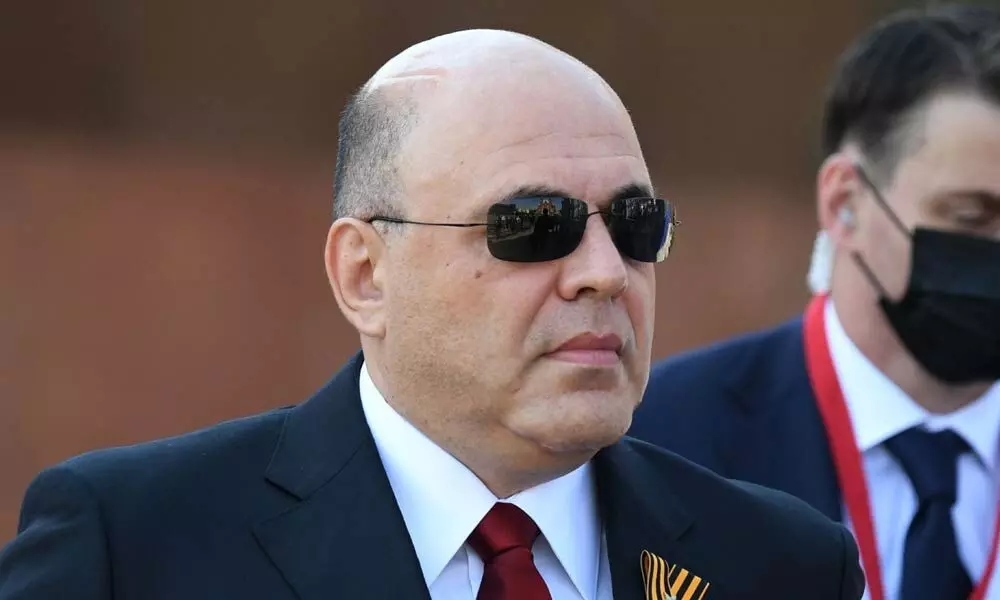The Kremlin's new man will keep us guessing
A “super bureaucrat,” as described by some mediapersons, he gets results, a useful skill in a government that requires what political scientists call output legitimacy, one that’s conferred by chalking up results
image for illustrative purpose

Russian prime ministers are often swiftly forgotten. Few, like Vladimir Putin himself, have gone on to greater things.
Since taking over as prime minister in January, Mikhail Mishustin has promoted himself out of the first group. The tech-savvy former tax chief became the face of the government's coronavirus response after Putin, early on, faded from view. He's pushing through an ambitious national spending program that's dear to the president. His personal popularity has been rising. And, in November, he tightened his hold on the domestic agenda with a cabinet reshuffle.
It's far too soon to say if he'll join the second category, with more than three years to go to the end of Putin's current term.
Yet Mishustin, little known until he was handpicked by the top man, already embodies a regime that is entering its sunset years. In a system in need of results, he's a capable administrator, who positions himself above the political fray. In a structure defined by divide and rule, he's a leading figure, but also one jostling for prominence with others who have their own spheres of power under Putin.
Given the economic and political challenges ahead, 2021 will determine whether Mishustin - and the wider apparatus - can keep up the balancing act.
After two decades in power, Putin isn't looking for a replacement. He's just put through constitutional reforms which, among other things, allow him to stand again as president in 2024 - should he decide to. His goal was to preempt a destabilizing search to replace him, he explained on state television at the time: "We need to work, not look for successors."
Mishustin fits with that strategy, aimed at keeping the ruling elite on their toes - just as his predecessor, Dmitry Medvedev, met Putin's need for someone willing to swap into the presidency in 2008, and then step out again. Despite quips at the time of his appointment about faceless bureaucrats, the 54-year-old premier didn't quite come from nowhere. Just as Putin was helped by academic-turned-St. Petersburg mayor, Anatoly Sobchak, Mishustin was a protege of former finance minister and reformer Boris Fyodorov.
He's since steadily climbed the ranks of Russia's civil service. As head of Russia's tax service, Mishustin used his tech prowess to overhaul a dated, leaky system, increasing revenues largely without adding to the tax burden. He had a flair for publicizing his modernization efforts, as when cosmonaut Pavel Vinogradov paid taxes from space. A "super bureaucrat," as described by some mediapersons, he gets results, a useful skill in a government that requires what political scientists call output legitimacy, one that's conferred by chalking up results. In that regard, perhaps his most high-profile task will be implementing the National Projects. A program first unveiled in 2018, the plan to boost living standards and development has been pushed back in light of the pandemic - no bad thing for Mishustin or Andrey Belousov, a key architect and first deputy prime minister, given the poor start.
Such massive multi-year rejuvenation ambitions have fallen short in the past. A realistic reset improves the prime minister's odds.
Mishustin has sidestepped questions about his personal real estate from Putin critic Alexey Navalny and others. (Defenders say he accumulated the wealth while working in the private sector.) It's less clear whether he will be lucky enough to avoid blame for any lasting consequences from Russia's policy of providing limited coronavirus stimulus in 2020, or largely delegating handling of the pandemic to unevenly resourced regions.
In that sense, his job is tougher than it was for some blander premiers of the 2000s who oversaw a growing economy, according to Vladimir Gelman of the European University at St. Petersburg. Mishustin's reach is more restricted too, he says, as Putin carves up responsibilities to maintain control.
The prime minister's government is only one centre of power under a Kremlin strengthened by 2020's far-reaching institutional reforms, and intent on keeping all future options open. There is also the Security Council, the wider presidential administration, the revamped State Council and more.
Ever the man of his political time, Mishustin has shown an astute awareness of his position's limits too, Ben Noble of University College London notes, including the need to avoid positioning himself as a rival for the presidency, something that's hurt others. In one widely reported episode, he publicly corrected a scientist who referred to Putin as his "colleague." Quickly, he set the record straight: "Not my colleague - our leader." Five words that encapsulate Russian governance in the 2020s. (Bloomberg)
Clara Ferreira Marques

